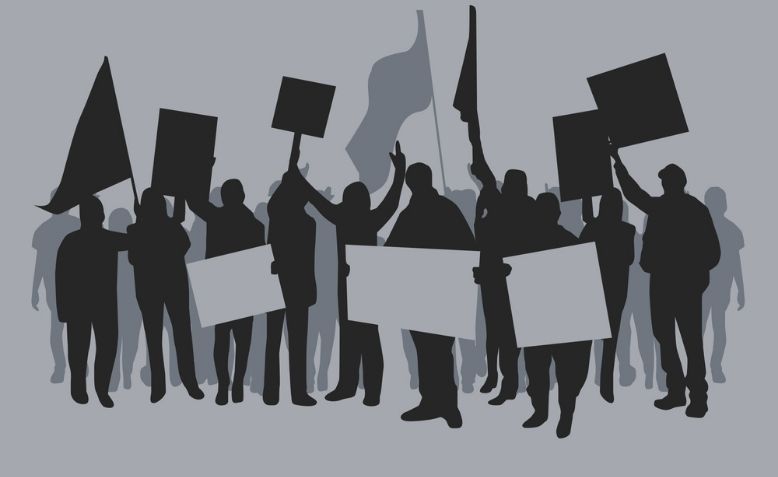 Pickets by workers. Photo: Freepik / / cropped original image / link at bottom of article
Pickets by workers. Photo: Freepik / / cropped original image / link at bottom of article
Flying picket Dave Freeman recalls the 1972 building workers’ strike and how the Shrewsbury 24 and many others fought to end ‘the Lump’
Before 1971 the unions in the construction industry were a number of small splinter groups with no real strength to do anything. This suited the employers. They would flood sites with what was called lump labour. We gave them that name because they would work for cash in hand or a lump-sum for the day. It was generally at a lower rate, but tax-free. This undermined working conditions. Often there were no toilets or washing facilities and health and safety was non-existent.
The death rate in the construction trade was one death per day on average. That was worse than deaths in mining and agriculture combined. Dumper trucks were driven around sites like dodgems, often with young lads who were untrained. Trenches were not protected by piles, and death from suffocation in collapsed trenches was a regular thing.
In 1971 the woodworkers, painter and decorators and other building trade unions merged to form UCATT. This was a massive step forward. In1972 UCATT put in a claim for a 35 hour week, a minimum of 30 pounds per week, and the abolition of the so-called self-employed or lump labour.
We went on strike for three months. I was based in Doncaster. If we heard of a site that was working we would be in the back of a van and off. This is why we were called ‘flying pickets’. They never knew where or when we would turn up. It was very exciting. But we weren’t interested in violence. We wanted to talk to other people like us and explain why the union was the answer.
Most lads on-site would walk off, embarrassed that we caught them working. After all, they would benefit from being in the union, and even more so if we won. But we knew it was difficult for lads on the lump. They faced blacklisting if they walked off a site that was not unionised. This is why the strike went on for so long.
We did win many of our demands. But the government made it illegal for pickets to picket a site they didn’t work on. The tragedy of the Shrewsbury lads is that the union failed to support them properly. If we had been on strike when they were on trial, especially if other unions had been asked for solidarity, I don’t think they would have gone to jail.
The 1972 strike needs to be remembered. The employers have never stopped blacklisting. I had to work away from home to keep working as a painter. The lump is back with a vengeance. It’s a free-for-all on the sites. Everybody has to be self-employed as a contractor, and that means there is no point in being in the union. But if we could do it then, it can be done again.
Building trade unions and fighting for rights means taking on the violence of the employers who put profit before lives. Our cause is democratic because we give workers a voice, and thanks for giving me one.
Before you go
Counterfire is growing faster than ever before
We need to raise £20,000 as we are having to expand operations. We are moving to a bigger, better central office, upping our print run and distribution, buying a new printer, new computers and employing more staff.

